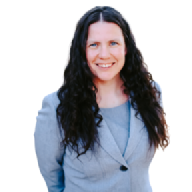Once again, let’s start with some definitions. The Columbia Encyclopedia (2018) states that social sciences study human behavior and relationships utilizing methods that have their basis in the scientific method and, moving through the 20th century, increasingly utilizing quantitative methodologies.
The noun “science” has several layers of definitions that can be addressed. From the Oxford Dictionary of English (2010):
noun#
\[*mass noun*\]the intellectual and practical activity encompassing the systematic study of the structure and behaviour of the physical and natural world through observation and experiment: the world of science and technology.
- a particular area of science: veterinary science
\[*count noun*\]: the agricultural sciences.
- a systematically organized body of knowledge on a particular subject: the science of criminology.
- archaic knowledge of any kind: his rare science and his practical skill.
The examples given in the first example fall under the idea of the type of science you might learn in school. Think: biology, chemistry, and physics. I am including agriculture under biology as it’s the applied biological science of plants and animals. Ever wonder why general plant books are in the 570s but your gardening books are in the 630s at your local library (that still utilizes the Dewey Decimal Classification)? This is why! I have been posed the question is there such thing as a social “science?” Like so many research studies, the answer is “it depends.”
If we are talking about the hard sciences, uncovering the fundamental truths of nature as best they can through rigorous study and evaluation towards a universal understanding of the world, universe, and how everything is made? No. We are not a science. There is no fundamental understanding of the human condition, of human nature that we can uncover.
If, instead, you mean the second definition put forward by Oxford Dictionary of English, that we are “a systematically organized body of knowledge on a particular subject” then yes. We have created special boxes to organize our knowledge into, making smaller boxes as we see fit to organize our ideas and ideas into. As humans, we want answers. We want to understand, we want to make sense of our world. We find new ways to try to investigate and explain things. The issue with social science in the level 1 definition of the word, is that humans are beautifully imprecise, and that means the things we do are also beautifully imprecise. Education has been searching for that answer to how we can best educate a population. All our research, all of our attempts to quantify learning, to find the numbers that explain students, and what have we surmised? We must personalize learning.
Because we’re human, and while you can always teach the middle, nobody exists there. Every person is wonderful, and exceptional. There is no algorithm to summarize; no algorithm to perfectly explain them. And so, I think it’s the art of applied social studies, rather than social science.
Citations
OCLC Online Computer Library Center, Inc. (2003). Summaries: DDC Dewey Decimal Classification. https://www.oclc.org/content/dam/oclc/dewey/resources/summaries/deweysummaries.pdf
Oxford University Press.. (2010). science. In Stevenson, A. (Ed.), Oxford Dictionary of English. : Oxford University Press. Retrieved 21 Apr. 2024, from https://www-oxfordreference-com.libproxy.library.unt.edu/view/10.1093/acref/9780199571123.001.0001/m_en_gb0741060.
Social science. (2018). In P. Lagasse & Columbia University, The Columbia Encyclopedia (8th ed.). Columbia University Press. https://search.credoreference.com/articles/Qm9va0FydGljbGU6NjEzODAx?aid=107761
